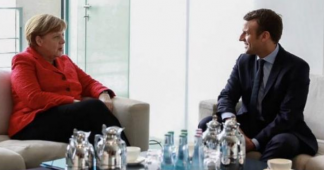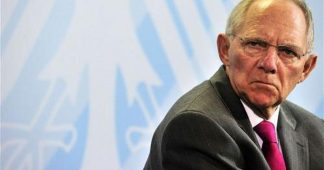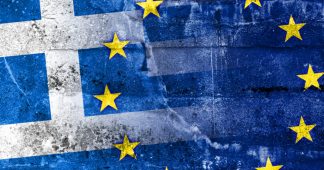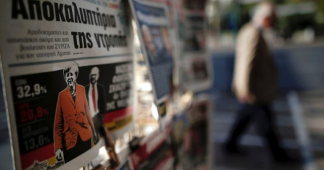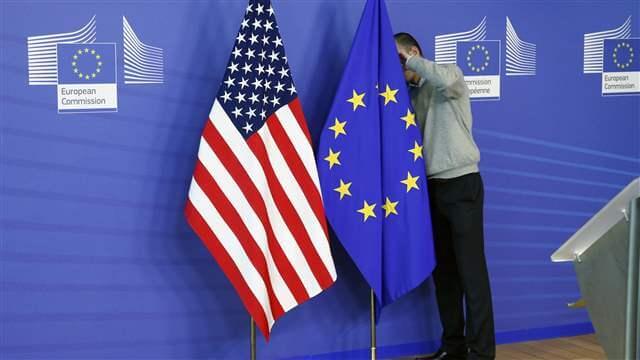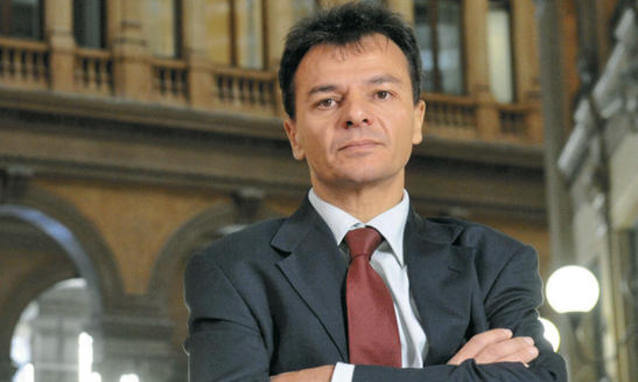By Dave Keating
8/9/2017
French President Emmanuel Macron has promised an aggressive push to reform the European Union after the German election. But there is still great unease about opening this Pandora’s box.
In a speech at the Acropolis in Athens yesterday, Macron doubled down on his promise to lead a six-month review of how the European Union works after the 24 September German election.
Without reform the EU risks a “slow disintegration”, he insisted, outlining a bold vision for what some are calling a ‘constitutional convention’. It will be aimed in particular at making the eurozone more cohesive, to avoid a repeat of the debt crisis. The drastic reforms he is envisioning would very likely involve treaty change.
But 2,000 kilometers away in Brussels, some national ministers were dousing cold water on his bold plan.
“I would be careful to start talking about treaty change,” Johan Van Overtveldt, Belgium’s finance minister, told a conference organised by the think-tank Bruegel yesterday. Noting that public discussions on Europe are unpredictable, he warned that opening the EU treaties could cause a “boomerang effect” which delivers the opposite of the desired result. The treaty revision process could be hijacked by populists, moving the EU backward instead of forward.
Easier said than done
Bruegel’s ‘Annual Meetings’, a yearly event which brings together big names in European politics, has this year been dominated by the subject of Macron’s envisioned reforms. The push will come following the German election on 24 September, after it is known how receptive the new German government will be to the ideas. Macron, who won the French election earlier this year in a landslide, made support for the European Union a centerpiece of his campaign.
“Of course the elections in France were a major change with respect to the general feeling about Europe, but there are a lot of countries where the sentiment remains somewhat different in the way people want to go with the European project ,” cautioned Van Overtveldt. “And I don’t think the German election will make much of a difference.”
Speaking on a panel about eurozone governance, Bruegel director Guntram Wolff observed that while many can agree on the need for reform in principle, the reality is going to get a lot more difficult once the specifics have to be agreed. For instance, he noted, Macron’s recent agreement with German Chancellor Angela Merkel to create the position of EU finance minister has remained vague.
“We can all agree on a eurozone finance minister, but no one can agree on its description ,” he said. It could just be a semantic renaming of the European Commissioner for economic and monetary affairs and the euro – or it could be an entirely new structure with huge power over national budgets.
Similarly, Macron’s calls for greater democratic accountability for the eurozone are not taking into account the complexity involved in such a task. “At the eurozone level we now have the Eurogroup with national parliamentary accountability, ” he said. “When we transfer powers, the question is do we want to do this at European level, with all the EU institutions’ benefits and shortcomings, or do we want to create a totally new thing? What kind of legitimacy do we want to give this new thing eventually?”
Van Overtveldt discouraged the idea of creating new institutions within the European Parliament for eurozone governance oversight, saying it would “only add an extra layer of complication to things ”.
Two-speed Europe
However not all national ministers at the summit were so cautious. Sandro Gozi, Italy’s state secretary for European affairs, said that he enthusiastically supports the idea of a bold EU and eurozone reform. He endorsed Macron’s idea to develop a “two-speed Europe”, in which a core group of countries move forward on establishing more ‘federal’ cohesion, while others sit it out.
“Europe has been conceived around the concept of multi-speed Europe, ” he said. “If the founders in 1956 had to wait for others, the treaties of Paris and Rome wouldn’t have started in due time. If when we decided to introduce the euro, the 12 countries had to wait for those who were not ready, probably today we wouldn’t have the euro.”
“I’ve heard and read that there are some member states who say multi-speed Europe would mean European collapse. But all the recent medical studies have found that your cardiac system is in far more at risk if you have a sedentary life, rather than a dynamic life.” A collapse will result from non-action rather than action, he insisted.
Centre-left French MEP Pervenche Berès agreed, saying a two-speed Europe was already created by the Maastricht Treaty when the UK and Denmark were given an opt-out from joining the euro.
Both, however, cautioned that there are two areas in which two speeds would not be acceptable: the single market and fundamental rights. “On that there can be no flexibility,” Gozi said. “On that we should be demanding that everybody play by the same rules.”
Not everyone was completely on board with the idea. Matti Maasikas, Estonia’s deputy minister for EU affairs, said he is uncomfortable with the idea that Macron’s reforms will set up a ‘by default’ two-speed Europe. “Even if we end up with some voluntary areas, like on defense or patents, the starting point should be that we want to move with everybody on board, ” he said. “And if in the end some member states decide they want to opt out, then so be it.”
He said this may be the case with one area certain to be part of the reform talks – European defence. “It ’s quite possible that in the area of defense we may end up with something that not all member states take part in, as some may have constitutional restrictions,” he said. “But of course more members states participate the stronger this arrangement will be.”
While there was much excitement about the possibilities presented by the reform dialogue, there was also anxiety. One summit attendee from the UK asked Gozi whether the push for more cohesion could result in a public backlash, noting that Euroscepticism did not become a powerful force in British politics until the creation of the euro and more centralised EU power in the 1992 Maastricht Treaty, which transformed the European Community into the European Union.
Gozi said he sees this as a British phenomenon. “It varies based on which country you ’re looking at,” he said. “In Italy Euroscepticism has been growing because of a lack of European action.” He noted that Italians are frustrated that the EU has not been more involved in tackling the migration crisis in the Mediterranean Sea, or in developing more economic and social policies.
“Seen from Rome, a speedier Europe in addressing common challenges and common concerns is a better way of addressing the challenges of Euroscepticism.”
